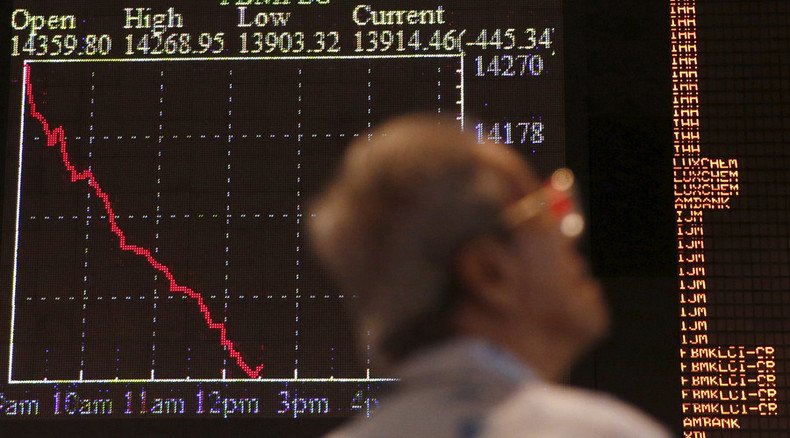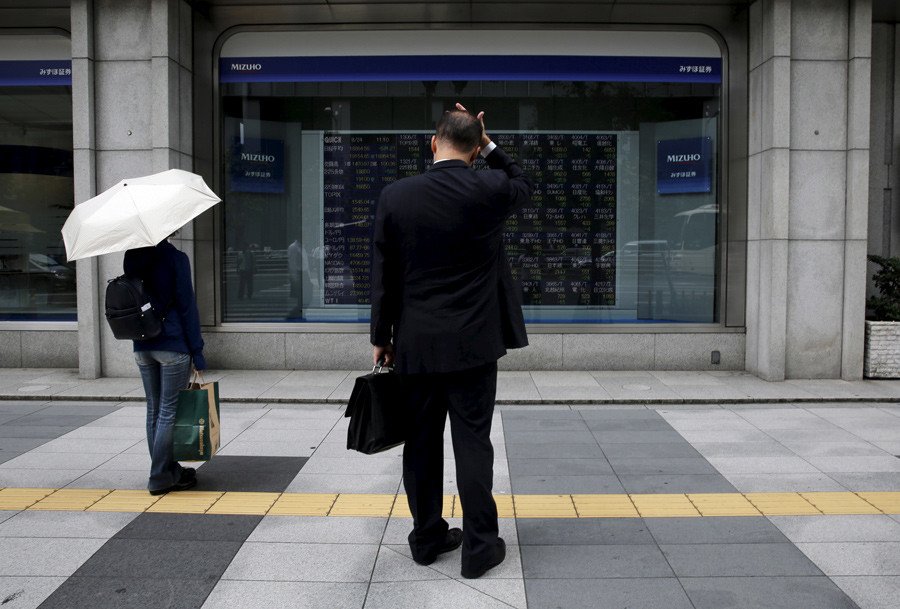‘Global markets not suffering a crisis, but rather a crash’

The current financial collapse is a shared responsibility, as the world economy is getting interdependent, said Liu Baocheng, Director of the Center for International Business Ethics. The world had high expectations for China’s performance in the global recovery, he added.
READ MORE: #ChinaMeltdown – don’t worry, be happy
RT: Today's headlines have been pinning the blame on China for the recent financial woes. Is Beijing to blame or is it more a shared responsibility?
Liu Baocheng: I believe it is a shared responsibility, because the world economy is getting so much interdependent on each other. Of course Beijing shares part of the blame because of the contingent. The world had high expectations of China’s performance as the driver for the global recovery. Right now it is not living up to the expectations. Particularly we see that the Chinese PMI [Purchasing Managers Index] is in the contraction range for a couple of months. So the confidence in the stock performance of those companies is still waning and many investors over the past few months have got their fingers burnt, and now they are in a healing process. Therefore they are still hesitant to participate in this stock exchange speculation, despite the efforts and despite the good incentives that the Chinese government has put into the stock exchange.
RT: Hypothetically, if there were more financial centers of power in the world, do you think that could have prevented crisis like this?
LB: It is not considered a crisis, but rather a crash, to be politically correct. But it is a big problem. So right now we do not really see stellar performance in any part of the world in the financial market. The financial market is highly integrated with currency, where the possible increase of the interest rate in the US is delayed, there’s no timeline declared. Now there is also a sudden drop of the Chinese currency versus the US dollar. So the Japanese Nikkei and the London composites are all reporting on the negative news.

Therefore, when Chinese investors, particularly those largest institutional investors, they are not only dealing with the Chinese market, but also they deal with whole world markets… Now I think China is not performing bad in the real economy so far; we still come in at seven percent growth. Of course China is also engaged in a very painful transformation to restructure its economic composite, and in the meantime the government is funding all possible tools in the kit to shore up the economy and to inject more confidence in the real economy.
RT: Do you have any thoughts when the world markets will recover from this crash?
LB: I think the world picture is not so pessimistic. The low range of the commodity price is not completely bad news to the whole world, although it is a problem for many of those supplier countries of energy and other commodities. And that can really give time for those economies like China who rely on the OEM [Original equipment manufacturer] business, on contract manufacturing. And I think when the world is really has a shared consensus over the financial markets and also over financial decisions that can have a major impact on the global financial market and also the commodity market, and when we see that there is a really structural change that can bring the major economies on the right track.
The statements, views and opinions expressed in this column are solely those of the author and do not necessarily represent those of RT.
LISTEN MORE:
The statements, views and opinions expressed in this column are solely those of the author and do not necessarily represent those of RT.












